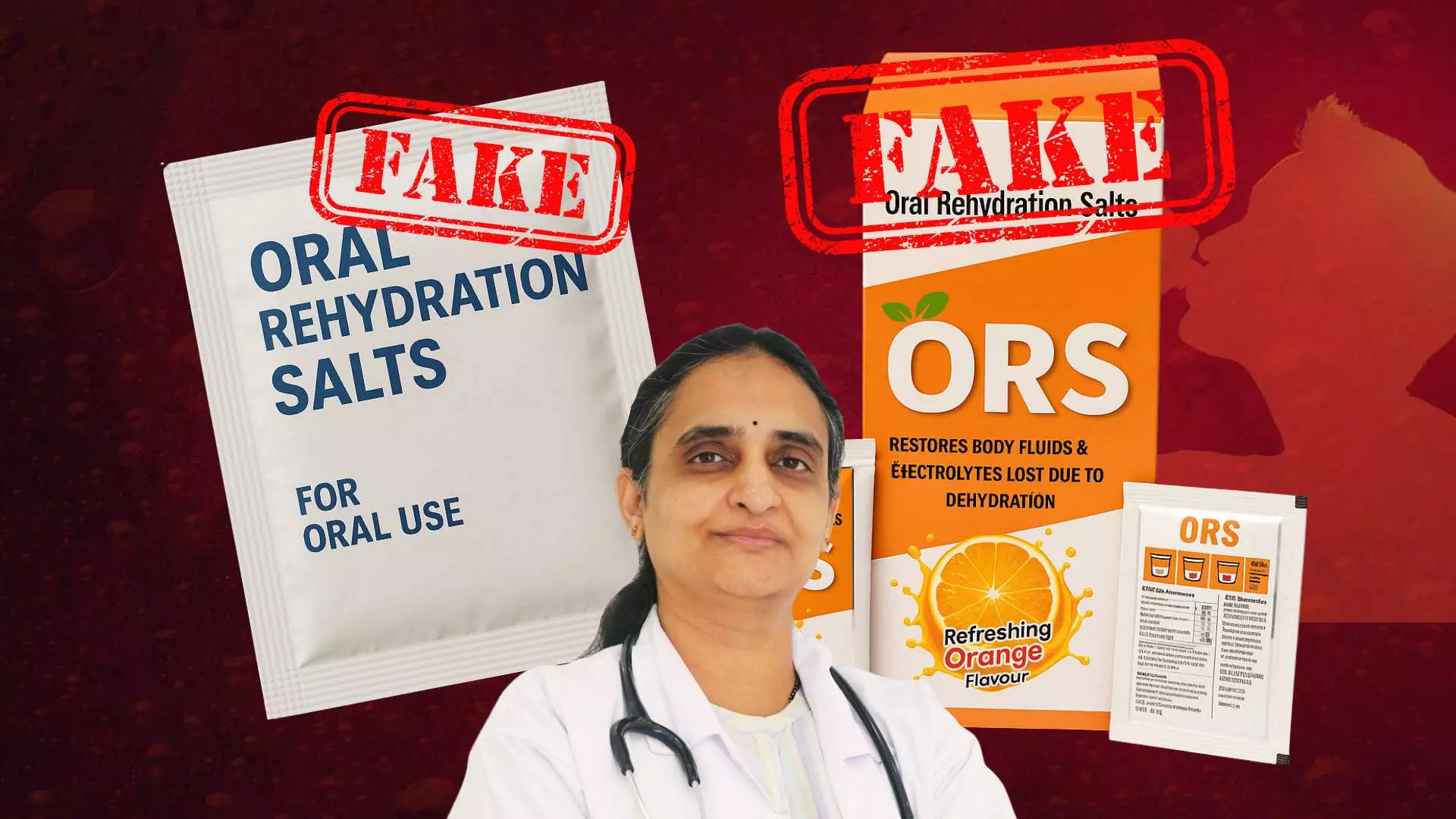
How a doctor fought relentlessly for an FSSAI ban on fake ORS products
Hyderabad doctor Sivaranjani Santosh's years-long campaign culminated in an October 15 FSSAI directive protecting children from mislabelled high-sugar beverages

For years, sugar-laden beverages were being marketed as oral rehydration solutions (ORS), putting children’s health at risk. Dr Sivaranjani Santosh, a paediatrician from Hyderabad, led a relentless campaign to correct these misleading claims, culminating in a landmark FSSAI directive that now protects consumers across India.
What initially sparked your campaign against sugar-rich beverages being marketed as ORS?
I’m a paediatrician and a parent, so I understand the critical importance of proper rehydration. Children and people with diabetes are especially vulnerable to dehydration, which can lead to shock and death if not treated correctly. ORS is a wonder drug of the 20th century that has saved millions of lives by ensuring the right balance of sodium and glucose for effective rehydration.
But I noticed that instead of recovering, many children were getting sicker. When I asked parents what they were giving their children, I realized these products had ten times more sugar than the WHO-recommended ORS formula. That extra sugar actually pulls water into the gut, worsening diarrhoea. Essentially, medicines meant to save lives were potentially harming children. That realization fuelled my campaign.
Also read: Second Opinion: Doctors warn of rising cyberchondria as AI self-diagnosis spreads
How did you begin your advocacy?
I started by raising awareness, but soon realized it wasn’t enough. I wrote to the CDSCO, who said they hadn’t approved these products; it was FSSAI that had. I then reached out to FSSAI and the Central Health Ministry over the course of a year. Initially, they issued an order stating ORS shouldn’t be used on these product labels, but within a few months, it was reversed, allowing companies with valid trademarks to continue selling them with disclaimers.
Disclaimers are ineffective because most people don’t understand them, and these products are widely available in hospitals, pharmacies, and schools. Glucon-D Active ORS, Indo-ORS, Himalayan Rehydrate, Electrochoice, and Zinkovit Active are just a few examples. All of these high-sugar products can worsen diarrhoea, which made the situation unacceptable.
What challenges did you face during this campaign?
There were many setbacks. Some tried to pacify me with speaking opportunities, which I refused. Social media harassment was significant—people questioned who was funding me or accused me of ulterior motives. Even my own family worried about the pressure.
Professional support was also mixed. The Indian Academy of Paediatrics (IAP) remained indifferent, while the Women Paediatricians Forum, the Endocrine Society of India, doctors, parents, and influencers rallied behind me. Ultimately, it was people’s support and collective advocacy that kept the campaign alive.
Also read: Centre drafts new law to tighten drug and medical device regulation
How did filing a public interest litigation (PIL) help your cause?
I filed a PIL in the Telangana High Court, though the process was slow. In 2024, before one hearing, I shared a social media post asking for support, which went viral. This mobilized widespread public backing. I also documented evidence of these products being sold and submitted case reports, letters from mothers, and news recordings to authorities, including the Prime Minister.
When the recent cough syrup incident in Madhya Pradesh came to light, it further highlighted the urgency of regulating mislabelled products. These events, combined with persistent advocacy, led to FSSAI issuing the directive on October 15, banning ORS claims on products not approved as drugs.
What are the public health implications of this FSSAI directive?
The directive protects children from misleadingly marketed high-sugar beverages that can worsen dehydration. It also highlights the dangers of other products, like high-jaggery foods or gummies marketed as safe for children, which can pose choking hazards and harm dental health.
Patient privacy is another concern, especially in government hospitals, where images of patients are sometimes shared publicly without consent. Such practices should be strictly regulated.
Also read: WHO flags three contaminated cough syrups from India; issues global advisory
What steps should the government and public take to improve awareness about safe products?
Awareness campaigns are essential—through social media, print, and television—about reading labels carefully. Labels should use prominent font sizes so consumers don’t need a magnifying glass to understand them. Regional language labelling is also crucial to ensure everyone can access clear information. Once people can read and understand labels correctly, they can make safer choices for themselves and their children.
What was your reaction when the FSSAI ban was announced?
It was a moment of validation. The order came not as a court judgment, but as a result of people’s advocacy. It demonstrated the power of public support in influencing policy and protecting children’s health. My hope now is that companies respect this directive and do not try to circumvent it by disposing of stocks or seeking legal stays.
(The content above has been transcribed from video using a fine-tuned AI model. To ensure accuracy, quality, and editorial integrity, we employ a Human-In-The-Loop (HITL) process. While AI assists in creating the initial draft, our experienced editorial team carefully reviews, edits, and refines the content before publication. At The Federal, we combine the efficiency of AI with the expertise of human editors to deliver reliable and insightful journalism.)

